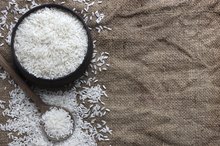What Are the Treatments for Loose Stools?
Loose, watery stools, or diarrhea, often lasts several days and requires more frequent trips to the bathroom. Causes of diarrhea include viruses, bacteria, medications, surgery and digestive disorders. The Cleveland Clinic states that most people suffer from diarrhea one to two times per year and the condition rarely becomes serious 12. Additional symptoms associated with loose stools are abdominal pain, fever, stomach cramps and bloating. MayoClinic.com advises patients to seek medical attention if diarrhea lasts more than three days, if stools turn bloody or black or severe pain is present.
If you are experiencing serious medical symptoms, seek emergency treatment immediately.
Home Remedies
MayoClinic.com suggests allowing the diarrhea to resolve itself, as it often lasts only a few days. A person should avoid eating dairy products, foods high in fat and spicy foods for several days. As bowel movements gradually return to normal form, adding semisolid and low-fiber foods to the diet is recommended. A person should gradually consume crackers, toast, rice and chicken until a regular diet becomes tolerable. Additional low-fiber foods include yogurt, ripe bananas, applesauce and smooth peanut butter.
If a person’s rectal area is sore from the loose, watery stools, a sitz bath or soaking in the tub may help. Sitting in a few inches of warm water relieves itching and discomfort associated with diarrhea. A person should pat the area dry and not rub to avoid irritation. The Cleveland Clinic suggests applying petroleum jelly or hemorrhoid cream to the area to decrease discomfort 2.
- MayoClinic.com suggests allowing the diarrhea to resolve itself, as it often lasts only a few days.
- As bowel movements gradually return to normal form, adding semisolid and low-fiber foods to the diet is recommended.
Hydrotherapy
Rice Congee for Diarrhea
Learn More
When suffering from diarrhea, the body may become severely dehydrated. The person should carry a water bottle and sip water throughout the day. Cleveland Clinic advises patients suffering from diarrhea to drink two to three quarts of water a day 12. Besides water, pulp-free juices, broths and caffeine-free soda are encouraged. The Cleveland Clinic also suggests drinking sports drinks, tea and fat-free chicken broth 2.
Medications
Over-the-counter medications to treat diarrhea are available in liquid and tablet form. Common medications include bismuth subsalicylate, commonly sold as Pepto-Bismol or Kaopectate, as well as loperamide The Cleveland Clinic suggests a dosage of 2 tbsp 23. of bismuth subsalicylate after each bowel movement 3. Loperamide is recommended if bismuth subsalicylate does not effect diarrhea after 12 hours 3. Occasionally antibiotics are prescribed if a bacterial or parasite infection occurs; antibiotics will not cure a viral infection.
Some medications will cause diarrhea as a side effect. A person should examine all medications taken over-the-counter and by prescription. A medical doctor may lower a medication dose or change medications to stop the diarrhea.
- Over-the-counter medications to treat diarrhea are available in liquid and tablet form.
Related Articles
References
- Mayo Clinic: Diarrhea
- Cleveland Clinic: Diarrhea
- Drugs.com: Bismuth Subsalicylate
- Su G, Ko C, Bercik, P, ET al. AGA clinical practice guidelines on the role of probiotics in the management of gastrointestinal disorders. Gastroenterology. June 9 2020. doi:https://doi.org/10.1053/j.gastro.2020.05.059
- Churgay CA, Aftab Z. Gastroenteritis in children: Part II. Prevention and management. Am Fam Physician. 2012;85(11):1066-1070.
- U.S. Department of Health and Human Services. Symptoms & Causes of Diarrhea. Updated November 2016.
- Centers for Disease Control and Prevention. Managing Acute Gastroenteritis Among Children. Published November 10, 2003.
- U.S. Department of Health and Human Services. Treatment for Diarrhea.Updated November 2016.
- Mayo Clinic. Diarrhea. Last reviewed June 16, 2020.
- Quigley EMM. Prebiotics and probiotics in digestive health. Clin Gastroenterol Hepatol. 2019;17(2):333-344. doi:10.1016/j.cgh.2018.09.02
- Su G, Ko C, Bercik, P, ET al. AGA clinical practice guidelines on the role of probiotics in the management of gastrointestinal disorders. Gastroenterology. June 9 2020. doi:
- U.S. National Library of Medicine. Clostridium Difficile Infections. Updated June 3, 2019.
- Churgay CA, Aftab Z. Gastroenteritis in children: Part II. Prevention and management. Am Fam Physician. 2012;85(11):1066-1070.
- McFarland LV, Goh S. Are probiotics and prebiotics effective in the prevention of travelers' diarrhea: A systematic review and meta-analysis.Travel Med Infect Dis. 2019;27:11-19. doi:10.1016/j.tmaid.2018.09.007
- World Bank Group. Oral rehydration solutions (ORS) [PDF]. 2019.
Writer Bio
Julie Hampton has worked as a professional freelance writer since 1999 for various newspapers and websites including "The Florida Sun" and "Pensacola News Journal." She served in the U.S. Army as a combat medic and nurse for over six years and recently worked as the Community Relations Director for a health center. Hampton studied journalism and communications at the University of West Florida.









